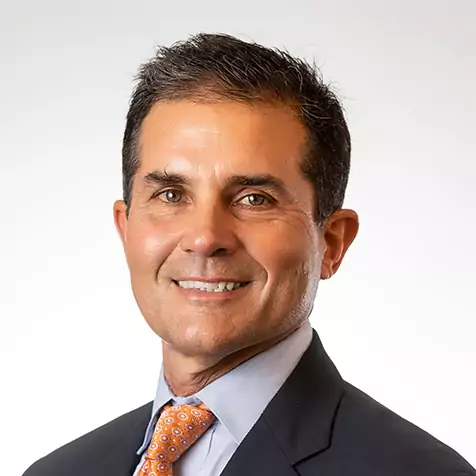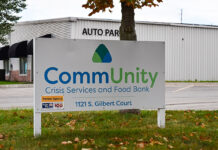
Mark Kaufman is the founder and chairman of Athletico Physical Therapy, a successful national company with local Iowa roots.
Mark shares with me how he started with a single rehabilitation center in Chicago in 1991, his unique insight into how camaraderie motivates rehabilitation, and his perspective from being on the front lines of the new college athletics landscape. Mark also explores how he and his team grew the company to nearly 1,000 locations, the ever-changing science (and business) of athletic training, and Mark shares what real success means to him.
Sponsored by MidWestOne Bank, this is the latest edition of the CBJ’s new podcast feature with Nate Kaeding and notable Iowa business and cultural leaders, available first to CBJ members. Listen to this episode below, and subscribe on Spotify, iTunes, Google Play, Stitcher.
_________________________________________________________________
Nate Kaeding: You played a number of sports growing up. Is the medical side of sports something that has always interested you?
Mark Kaufman: I loved sports growing up, and those were the days where kids of all ages just showed up at the park and you played basketball or football or whatever. I had little talent for basketball, but I loved football. I played football through high school. I also wrestled for a few years, which is obviously what you do in Iowa if you can’t play basketball.
My mom was a beautician. My dad was a carpenter. So I became one of those first generation kids to go to college. I knew that I wanted to do that. I knew I didn’t want to be a carpenter or a beautician. If I would’ve put money on it coming out of high school, I probably would’ve thought I would be a coach or a teacher. We didn’t have athletic trainers in high school, so I just basically stumbled into finding the athletic training program at Iowa. It has been a lifelong love affair.
When did you first find that spark for this profession?
This story hasn’t been told too often, but the real story is that I had dialed into a local radio station and answered a trivia question. I won two wrestling tickets at the field house. So I went to this meet with my cousin who was a really good wrestler. I’ll call myself average. We went out to watch Iowa wrestle and someone got injured on the mat. This guy goes out and takes care of him. Who is this guy? The guy ended up being Danny Foster.
We got an assignment a few weeks later in my high school rhetoric class to write a letter of inquiry. So I wrote a letter of inquiry to Dan Foster and just said, “Hey, I’m coming to Iowa next year. Do you need somebody to sweep the mats?” He sends back this packet on the athletic training major at Iowa. I thought, “Wow, that’ll keep me connected to sports. Let me see what this is about.” I knew a little bit about it, because our coach could tape ankles and do the basics of athletic training, but was by no means an athletic trainer.
I was an education major, but then ended up applying to the athletic training program. It was a two-year program. In your junior year, you worked through all sports. Then, my senior year, I got assigned to football, which became a landmark year. It was the ’85 Hawkeyes with Chuck Long and Larry Station, and we won the Big 10 championship. The first time I was ever in an airplane was flying to Chicago to play the Northwestern Wildcats my senior year.
Did your entrepreneurial journey start at Iowa as well, or did that pop up a bit later?
It popped up a little later on. I did my grad work after I left Iowa in ’86. I was in Tucson for two years working with the athletic teams. I thought “Well, maybe if I can get into physical therapy school, that will help me get a better job in the college ranks.” I thought that was my career path. I loved working in college sports and I saw no reason to go anywhere else. So I went to Northwestern in Chicago for physical therapy school right after I finished my two years in Tucson. At that point, I saw the connection between outpatient physical therapy clinics and a good athletic training room — the atmosphere, the camaraderie, the healing environment, seeing athletes get back on the field and seeing patients wanting to get back to life.
I met this Greek girl from Chicago, Maryann, during my senior year at Iowa. She fell madly in love with me, and I agreed to marry her a couple years later. If you know anything about Greeks, you’re not going to get their daughters too far away from their parents. So I knew Chicago was going to end up being my home. Truth be told, there weren’t too many great athletic training opportunities in the college ranks in Chicago, and they were already taken. So that’s when I started to focus on the private sector.
To Maryann’s credit, she would’ve bopped around with me, which was the career path for a lot of athletic trainers. But that private sector opportunity combined with my love for Chicago became the genesis for Athletico. That story is pretty simple. I worked for a private group a couple blocks from our apartment and worked there for two years. I did start an outreach athletic training program on my own. The interesting thing was that I figured out that I didn’t just love working with college athletics. I loved working with all athletics.
What was that first year as a small business owner like? Did you find success right away?
We opened on a Saturday. I remember that day. The things that scared me were the financial side and the lack of business knowledge. Fake it until you make it. I signed a 10-year lease because real estate at that time was very difficult. It was a tough commercial market and they weren’t in the mood for a lot of new startup businesses with no track records and no senior executives. I tried to get a business loan. I went to a few banks and even used an Iowa connection from a former basketball manager who was a great kid that couldn’t help me. I ended up borrowing money from a college roommate of mine from Iowa. I borrowed from my parents and from my in-laws who were very gracious to support me.
Failure wasn’t an option. I wasn’t going to be outworked. I got there at six in the morning and stayed until eight at night every day. I worked Saturdays all day covering events. My wife was working as a pharmaceutical rep and we didn’t have children. I just devoted my time. We didn’t take vacations. I just got after it.
I was so used to working with team physicians that it was just natural for me to connect to doctors. If you came in and you had a bad shoulder or an ankle, I was going to find the right doctors and I’d match the right patient with the right doctor who was a high-quality physician covered by the insurance. All of a sudden, word of mouth kicked in. I remember doctors calling me and asking “Who are you and where are you getting these patients?” I’d assess the injury and get it to the right doctor and do it without the internet or cell phones back then. I’d see an injury on Saturday, have them in the office Monday morning, and skip the ER if they didn’t need it. They were very appreciative. That led to a lot of relationships that I still hold today. Relationships matter.
When did you know it was time to open that second location? What was your growth strategy?
I wish I could pull out my strategy from 1991, but honestly, the first goal was just to keep that first center open. We opened the second one in ’94. It was based on a person I knew. It taught me a lot about partnerships. One of the reasons I started Athletico is because I thought there was a quick ceiling when I was in my first job. I didn’t see myself really moving up and I had the audacity to open my own center two years into my career. It seems a little crazy now, but that’s how it worked.
But I saw good people — physical therapists or athletic trainers — that had talent. So we had an equity model where they would be minority equity holders. They would be running their operation. We had work to do to bring the culture together when we scaled it to more than a dozen sites. You didn’t want a different culture where you’d walk in and feel something completely different from one site to the next. That model works really well. They take a lot of pride in it.
So nine years into the business, I think we had 10 sites. By 2005, we probably had 30 or 40 sites. By 2010, we had probably close to 80 or 90 locations, mainly in Chicagoland. But now we were starting to branch over into northwest Indiana. Maybe we touched the Quad Cities by then.
Then, in 2014, we did our first private equity deal, so we brought on a capital investor. We had about 100 locations. It was a group called Harvest Partners. They were great partners. We did our first real acquisition. Imagine organically growing a company to over 100 locations with around 1,500 employees, and they had 247 locations and 2,500 employees. So they were more than twice the size of us. That took a few years off of my life, but it was a great experience and we acquired a huge group of talented people through that acquisition.
How did things change for you as a leader when the company grew that much?
I struggled with a couple things, one being retracting myself from the hands-on care. I probably took too long for that. It came to a point where I wasn’t good at anything. I wasn’t being a good therapist. I wasn’t being a good husband and father. I wasn’t being a good executive leader because I was running around with my head cut off. I pulled out of physical therapy knowing that we had plenty of good therapists. It’s just the fact that I love doing it and being in the trenches, so to speak.
I can’t be a great real estate guy. I cannot be a finance guy. I cannot be a lawyer. I cannot be a risk manager. But I think I have some skills around uncovering good folks, and surrounding myself with smart people and keeping them in my life. We had a lot of hardworking folks that wore a lot of hats. I’m pretty good at the collaboration and communication and cultural building sides. It’s what I enjoy. So it’s probably my sweet spot.
What are your thoughts for those who are worried about the current dangers of sports injuries?
I get asked more than a few times about whether or not I would let my children play football. The answer is “If they have passion around it.” If they don’t have passion around it, then it’s not good for anyone. If the kid had passion for football, provided we understand the risks associated with CTE and head trauma and the potential risk of orthopedic injuries, I would never give up the teammates and the opportunities I had, as I’m sure you wouldn’t.
But the sports that catch my attention are the ones that have a combination of the chronic injuries and the acute injuries, like gymnastics. You know, where you blow out your knee and you can have low back pain just by doing back flips a hundred times a day for 20 years. That can be with wrestling, that can be with football, that can be with soccer, or other things. Our oldest daughter found swimming on the third try. I think the gifts of sport or athletics outweigh the risks.
What’s your take on the current state of college athletics?
Well, I’m happily not a college coach right now. I’m glad with my career decision. It’s my nature to worry about things or to worry about what’s going to go wrong before I can appreciate what’s going to go right. That’s just the way I’m wired. But I think the NCAA laid an egg in that they didn’t really get their arms around this Name-Image-Likeness and transfer portal stuff. They could have taken some action to better assess, plan, strategize, and come up with some options.
I think this is gonna get a little goofy. I think there should be opportunities for them to move along if the situation they chose as an incoming freshman doesn’t work out. But I also think there’s not enough guideposts around that with the portal and some things that are happening now. If you’re a coach, I mean, can you imagine coaching a kid and trying to pull the team together, and the next day the kid says, “Yeah, I didn’t like the way I was coached yesterday and I want out.” So that scares me because I love college sports. I still appreciate professional sports and athletics in general, but I worry about where it’s going. I think it’s going to require some really thoughtful people and thoughtful leaders. I see hopes of that with some of the folks. I still read a lot about it today.
The thing that is really interesting to me: I think there’s an opportunity with revenue sports like college football and basketball where they can create a positive number on their profit and loss sheets at the end of each year. But I think what could happen or should happen is that amateur athletics, meaning the USOC and all the national governing bodies — our country and other countries — they should come together and create some type of environment where the revenue sports that generate these huge contracts help support the budgets of these Olympic sports and still fund their operations. They can receive support from the university but also receive support from national governing bodies and the United States government. It’s a shameful job if you dig into the numbers of some of these bobsledders or distance runners or rugby players. I think there’s a real opportunity to do something.
But all these national governing bodies all want a piece of the pie and they all have administrative structures that don’t come together. If you don’t have somebody pulling these things together where you’re not being redundant in your expense side of the ledger, you’re not going to have enough to really support what I believe should happen with college sports.
How do you define real success?
If I looked at myself and said, “Have you been successful?” With my education, having a career, having a family, having three beautiful daughters and a great wife, by all means that would be successful. But if I asked myself, “If I died today, would I be happy with that?” The answer is no. There’s just so much more to do. I think the more you can touch others and mentor others and support others, that comes back a hundred fold. By those terms, I’ve been modestly successful so far, but I have a lot more I want to do.




